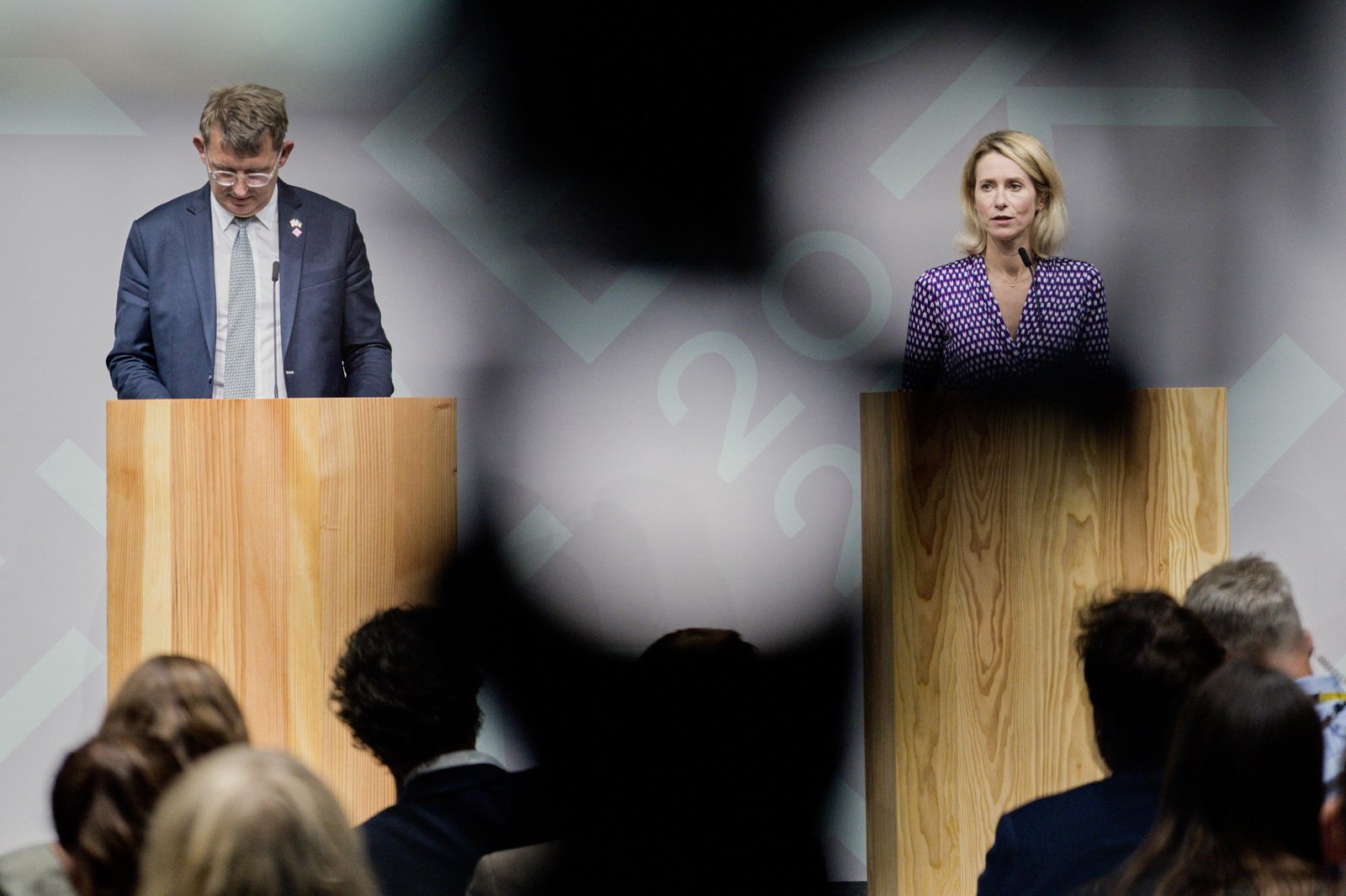COPENHAGEN – European defence ministers gave “broad support” for training Ukrainian troops inside the country once a ceasefire is reached with Russia, but not before, the bloc’s top diplomat Kaja Kallas said on Friday.
Kallas said her proposal to immediately expand the European Union training mission’s mandate so it can be used as soon as a ceasefire is established failed to win backing from ministers.
“We are the largest provider of training to Ukraine’s military. We have trained over 80,000 soldiers so far, and we must be ready to do more,” she told reporters in Copenhagen, following a meeting of EU defence ministers.
“Ministers were clear that the security guarantees for Ukraine must be robust and credible,” Kallas added.
EU diplomats told Euractiv that many member states signalled openness on Friday to amending the mandate of the bloc’s training mission in the future, which could allow training to take place inside Ukraine once a ceasefire is agreed.
The mission’s current mandate, extended till the end of next year, restricts training to within the EU.
The idea of extending it into Ukraine has been floated before. However, several countries remain reluctant while it is still unclear when and how a ceasefire might be agreed and enforced.
Dutch Defence Minister Ruben Brekelmans said in Copenhagen that a ceasefire was a “condition” for training inside Ukraine – a position EU diplomats say is shared by several others, including Germany and Belgium.
The same goes for some staunch Ukraine supporters usually more forward-leaning on military support.
For instance, Latvia’s Defence Minister Andris Sprūds said there would first “have to be clarity with the parameters, the format of the ceasefire or the peace agreement”.
By contrast, France and Lithuania have repeatedly said they would be ready to send trainers to Ukraine even before the end of the war.
Hungary games
Kallas said extending the training mission into Ukraine would also send a message to the United States.
“Americans have been very clear that Europeans have to be leading” on security guarantees, she told reporters. “So again we need to show how we are taking responsibility for certain tracks … Training has been in Europe, and we are ready to do it on Ukrainian soil once there is a truce.”
Yet, a change in mandate requires unanimous support by all 27 EU states, leaving a familiar hurdle: Budapest.
Hungary’s Russia-friendly Prime Minister Viktor Orbán has long acted as a spoiler in EU support for Ukraine, including by blocking the use of the €6.6 billion European Peace Facility for further military aid.
EU foreign ministers meeting in Copenhagen on Saturday are expected to discuss further ways to ramp up pressure on Moscow and how to put Ukraine into a stronger negotiating position.
(aw)





